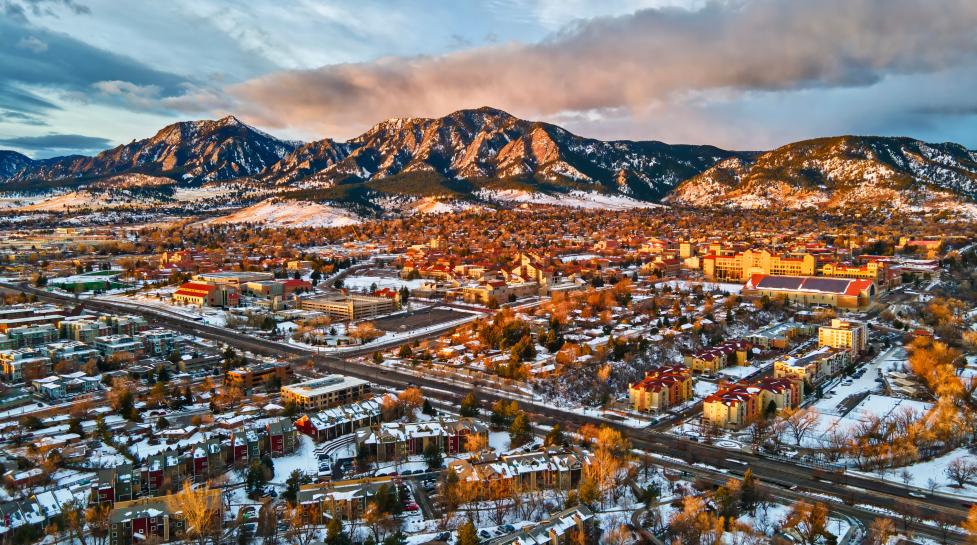The City of Boulder has released its 2023 Greenhouse Gas (GHG) Inventory, highlighting a 7% decrease in community-wide emissions from 2022 and a 24% reduction since 2018. This milestone reflects Boulder’s steady progress toward its ambitious climate goals: a 70% reduction from 2018 levels by 2030 and achieving net-zero emissions by 2035.
This annual inventory helps measure the impact of local and regional actions on the climate crisis, demonstrating the community's role in reducing emissions and advancing climate solutions. Boulder’s inventory serves as a tool in understanding the sources and trends of emissions, enabling the city to measure and refine its climate policies.
“Our community has made tremendous strides in reducing emissions and advancing climate action,” said Climate Initiatives Director Jonathan Koehn. “This progress is possible through Boulder’s collective commitment and collaboration with our neighbors and our partners. However, there is still important work ahead. To meet our ambitious climate goals, we must continue to innovate, invest in cleaner energy and support sustainable practices.”
The largest drop in Boulder’s emissions has come from building electricity, thanks to cleaner energy sources and lower overall consumption. Moving buildings away from fossil fuels is critical to achieving cleaner air and a low-carbon future for Boulder.
To continue this progress, Boulder is prioritizing high-performance, emissions-free and healthy buildings. Key initiatives include creating financing options that make efficiency upgrades and electrification more affordable and accessible, especially for low-income community members. Boulder is also committed to using low carbon building materials, growing the workforce for affordable heating, ventilation and air conditioning installation, and enhancing resilience with local energy generation and storage. These efforts support a more sustainable, accessible and resilient Boulder.
The city continues its work with Xcel Energy to ensure a 100% emissions-free electricity supply while increasing affordable access to local solar and energy storage. Since 2018, enrollment in Xcel’s renewable energy programs and installations of rooftop solar systems in Boulder has grown by 237%. In 2023, Boulder achieved its 2030 goal of 100 MW of local generation, a milestone that strengthens the community's capacity to reduce emissions in the building energy sector.
As in previous years, the report shows that transportation remains a major source of emissions, much of it stemming from those traveling into Boulder, including commuters and visitors.
“While we’re making progress reducing emissions in some areas, others, such as transportation, will require sustained collaboration and innovative solutions,” said Senior Sustainability Data Analyst Kate Galbo. “Our work ahead as a city involves deepening our focus on accessible and sustainable transit options and continuing the transition to a cleaner grid.”
Community members are encouraged to join in this effort. Small, everyday choices, such as choosing sustainable transportation, conserving energy and supporting clean energy initiatives, add up to big impacts.
For more details on Boulder’s Greenhouse Gas Inventory and how to get involved in local climate action, visit Boulder’s Climate Initiatives webpage.
